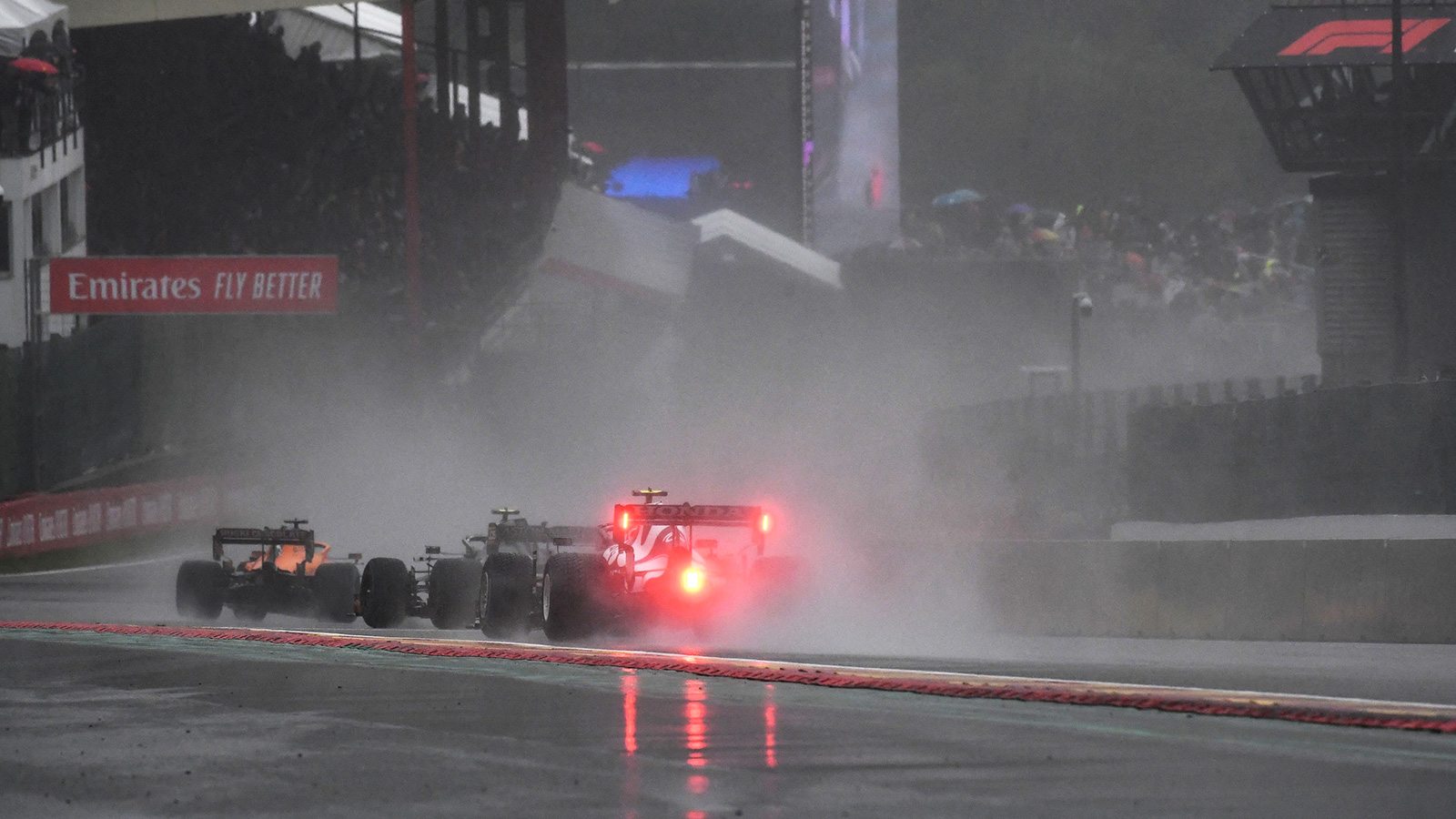Formula 1 Is Still Blaming Drivers For The Belgian GP Farce A Month Later
Also, the FIA president has requested "cars that can be driven even in the rain" for the 2025 regulations.
Nobody was really thrilled with how the shortest race in Formula 1 history went down. Not the drivers and teams, who would've rather raced. Not the FIA and the event organizers, who — at least as of a month ago, anyway — were "working through" options to recompense spectators for a waste of a Sunday. And certainly not the fans.
If you missed it, long story short, the Belgian Grand Prix was delayed for three hours due to nonstop rain before cars formed on the grid, ran two laps behind the safety car and returned to the pits. That allowed the race to be classified, per the F1 rulebook, and half points to be awarded. We can and should argue all day about the decision to count that as a complete race, however the call not to run the event in those treacherous conditions was the right one — especially after recent accidents at Spa-Francorchamps.
In the aftermath of the weekend, I never heard anyone argue that the underlying problem is that F1 cars aren't dependable enough in adverse conditions. But that appears to be the opinion of FIA president Jean Todt, who said as much in comments quoted by Motorsport.com:
"There were many who criticised what was decided at Spa [by not racing], but what would have happened if, after the start, we had had an accident with 10 cars that resulted in injured drivers or worse," explained Todt.
"We would have been massacred. And even without injuries we would have been criticised. For the 2025 regulations, we must think about having cars that can be driven even in the rain.
I'm no engineer, but I'm not sure what can be done to make the fastest open-wheel race cars in the world safer in the rain. Especially when the real problem in this particular case wasn't so much water on the track surface, but more the total lack of visibility due to inescapable spray from leading cars, coupled with the chronic mist of the Ardennes forest that surrounds Spa. I mean, if anyone has ideas, go call Todt up because I'm sure he'd love to hear them. Even more questionable than that comment, though, was the next one the FIA president made:
"Do you remember [Niki] Lauda at Fuji in '76? He was the only one of the drivers to give up racing in the rain. Today, every driver thinks as Lauda did then."
First off, I feel like we need to recognize here than Lauda nearly died at the Nürburgring two months earlier. One might say the man had his reasons.
Anyway, at this point Todt is venturing into "blame the drivers" territory, which doesn't help anyone. It also rings a little hypocritical, when the decision not to run was made out of the interest of safety, and the FIA is uncompromising in its messaging that safety is "at the very top of its list of priorities." This is what it looks like when safety is paramount, as it should be: sometimes, races are delayed or canceled altogether. The system worked as it should have.
The thing is, we wouldn't even still be talking about this if F1 had chosen not to make those two laps count as a race, or moved to run the grand prix on Monday or Tuesday like NASCAR and IndyCar probably would've done. But the powers that be were adamant that postponing the race was a non-starter due to agreements in place with track owners and event promoters.
The situation at Spa was sort of a freak occurrence, and nothing precisely like it had ever happened before in F1 history. Perhaps climate change will make such deluges more common, but I don't think we need to panic to solve a one-time problem before it's proven more of a trend. If F1 really wants to prevent something like the 2021 Belgian GP from ever happening again though, it might be more realistic to modify agreements to allow races to be pushed back a day if need be, rather than design mythical race cars that have excellent grip and visibility in the rain. Also, maybe don't shift the blame to drivers and their desire not to be killed to dodge culpability your own screwups.
